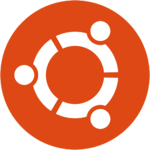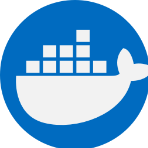Search the Community
Showing results for tags 'remote work'.
-
As we settle into remote work for the long haul, it’s crucial to consider how best to support DevOps teams. While DevOps employees face similar challenges working remotely as any other department, they also face increased pressure to deliver as IT professionals, supporting the entire organization through an ever-changing work environment. By nature, remote work […] The post 3 Ways to Support DevOps Teams in Remote Work appeared first on DevOps.com. View the full article
-
DjangoCon Africa (Zanzibar, 6-11 November 2023) takes place for the very first time this year: a pan-African DjangoCon to join the family of DjangoCons that take place in Europe, the USA and Australia each year. Canonical will be sponsoring the conference, and we’ll be there with talks and workshops. Open-source software in Africa Our support for open-source software and its communities is global. African open-source activity is not always noticed by those outside the continent, but with more than a billion people and some major technology hubs, it’s significant, and growing. PyCon Africa 2019, Accra, Ghana In particular, Africa open-source communities are growing rapidly, not just in numbers, but also in confidence and ambition. There is more scope for new success and adoption of open-source software in Africa than anywhere else in the world. Why it matters to Canonical We want to be the leading open-source software company in the world, and that means in all the world, not just the more obvious parts. We believe that the range and depth of African software talent should not be ignored. We are a remote-first company, and hire people everywhere in the world. We want to offer opportunities of advancement and career development to talented people, wherever they live and wherever they are from. Remote work is especially important to Africa. Too often, the best opportunities for talented Africans lie outside Africa. Migration depletes local economies and societies of people and important skills. Remote work changes that. It means that individuals don’t have to face the choice between personal opportunities and remaining in their local community. It helps build local networks of knowledge and support, that can foster and encourage new talent. African colleagues at Canonical Part of being the best open-source software company in the world means having all the world properly represented inside Canonical. We are serious about improving diversity in our company, and in the international software industry. We already have a number of African colleagues working in Canonical and we want to add to that number. Meeting African software practitioners at DjangoCon Africa will help us do that. It’s not even just a matter of geographic or ethnic diversity: in African software open-source software communities women are generally represented much more strongly than they are in the west. PyCon Africa 2019, Accra, Ghana Meet us at DjangoCon Africa Canonical will be represented at DjangoCon Africa by Daniele Procida (Director of Engineering) and Busola Marcus (Process Engineer). We’ll be there as part of the conference programme, taking part in talks and workshops. In particular we will be running a careers workshop, aimed at helping attendees have the best possible success in finding and applying for software roles in a global jobs market, with advice about how to apply, CVs, interviewing and more. We have dozens of roles open, at all levels of experience, from graduate to director, in many different disciplines. Meet us there, and find out more. View the full article
-
In recent years, the world has witnessed a significant shift towards remote working, largely driven by global events such as the COVID-19 pandemic. This transformation has necessitated the adoption of new tools and strategies, with automation emerging as a key enabler of effective remote work. So, what does automation mean in this context? Well, it’s […] View the full article
-

remote work Developers Continue to Prefer Remote Work
Devops.com posted a topic in General Discussion
A survey found 83% of developers are working remotely more than half of the time, with more than three-quarters (76%) reporting they have maintained or increased the frequency of remote work in the last year. In fact, three in five respondents (62%) work remotely at least 90% of the time. The survey, published by Netlify, […] The post Developers Continue to Prefer Remote Work appeared first on DevOps.com. View the full article -
With the rise of remote-first and hybrid work models in the tech world, promoting developer engagement has become more important than ever. Maintaining a culture of engagement, productivity, and collaboration can be a hurdle for businesses making this new shift to remote work. But it’s far from impossible. As a fully-remote, developer-focused company, Docker was thrilled to join in a like-minded conversation with RedMonk and Miva. Jake Levirne (Head of Product at Docker) was joined by Jon Burchmore (CTO at Miva) for a talk led by RedMonk’s Sr. Analyst Rachel Stephens. In this webinar on developer engagement in the remote work era, these industry specialists discuss navigating developer engagement with a focus on productivity, collaboration, and much more. Navigating developer engagement Companies with newly-distributed work environments often struggle to create an engaging culture for their employees. This remains especially true for the developer workforce. Because of this, developer engagement has become a priority for more organizations than ever, including Miva. “We actually brought [developer engagement] up as a part of our developer roadmap. As we were talking about ‘this is our product roadmap for 2022 — what’s the biggest challenge?’, my answer was ‘keeping people engaged so that we can keep productivity high.’” Jon Burchmore Like Miva, other organizations are starting to incorporate developer engagement into their broader business decisions. Teams are intentionally choosing tools and processes that support not only development requirements but also involvement and preference. By taking a look at productivity and collaboration, we can see the impact of these decisions. Measuring developer productivity and collaboration As both an art and a science, measuring developer productivity and collaboration can be difficult. While metrics can be informative, Jon is most interested in seeing the qualitative impact. “How much is the team engaging with itself […] and is that engagement bottom up […] or from peer-to-peer? And a healthy team to me feels like a team where the peers are engaging as well. It’s not everyone just going upstream to get their problems solved.” Jon Burchmore As Jake adds, it’s more than just tracking lines of code. It’s about focusing on the outcomes. While developer engagement can be difficult to measure, the message is clear. Engaged developers are non-negotiable for high-performing teams. Approaching developer collaboration Developer collaboration is another linchpin for building developer engagement. Teams are now challenging themselves to find more opportunities for pair programming or similar types of coworking. Healthy collaboration should also not be limited to single teams. “When you unlock collaboration both within teams and across teams, I think that’s what allows you to build what effectively are the increasingly complex real-world applications that are needed to keep creating business value.” Jake Levirne Organizations are taking a more holistic, inter-team perspective to avoid the dreaded, siloed productivity approach. Watch the full, on-demand webinar These points are just a snapshot of our talk with RedMonk and Miva on the challenges of developer engagement in the remote work era. Hear the rest of the discussion and more detail by watching the full conversation on demand. View the full article
-
Originally published on Failure is Inevitable.Fostering teamwork and cultureWith decreased resources, increased stress and cognitive load, and social distancing policies, many teams are under extreme pressure. Without over-communication and special attention paid to organizational culture, teams can.. View the full article
-
Feature flags can help reduce the stress associated with DevOps during WFH The world has drastically changed. As a result, we have had to adapt the way we shop, socialize, educate and work. Businesses have had to adapt to keep operations going, and the biggest change they’ve had to make has been the move to […] The post Feature Flags: The Cure for DevOps Remote Work Stress appeared first on DevOps.com. View the full article
-
Originally published on Failure is Inevitable.Fostering teamwork and cultureWith decreased resources, increased stress and cognitive load, and social distancing policies, many teams are under extreme pressure. Without over-communication and special attention paid to organizational culture, teams can..View the full article
-
Forum Statistics
67.7k
Total Topics65.6k
Total Posts
.png.6dd3056f38e93712a18d153891e8e0fc.png.1dbd1e5f05de09e66333e631e3342b83.png.933f4dc78ef5a5d2971934bd41ead8a1.png)

